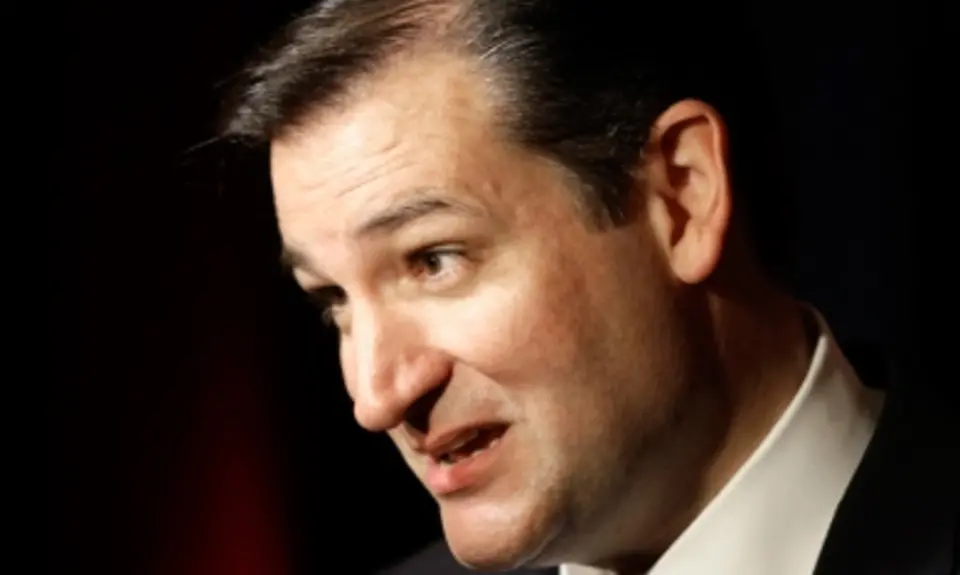There is no shortage of senators opposed to the DISCLOSE Act. But while any of them will no doubt bloviate on why shining a light on campaign ad expenditures somehow limits free speech, junior Texas Senator Ted Cruz has taken his distaste for sunshine to a new level this month by holding the Federal Communications Commission hostage over the matter. Luckily, Sen. Cruz has folded, in part due to his dwindling stock among GOP leaders.
With two seats vacant on the FCC, the Senate Commerce committee held confirmation hearings this summer on candidates to fill the commission. While Michael O’Rielly, an advisor to Sen. Cornyn of Texas, faced a breezy nomination hearing in September, nominee Tom Wheeler’s June hearing grabbed media attention thanks to Sen. Cruz. Mr. Wheeler, a long time industry leader and President Obama’s nominee to chair the Commission, was asked by the senator for his thoughts on the FCC’s role in campaign ad disclosure. When Mr. Wheeler replied frankly that he did not know enough about the matter and could not answer, Sen. Cruz threatened to hold up the confirmation process until he was given a different answer.
Once the federal government reopened this month, the Senate was poised to pass the two nominees so that the FCC could handle its full docket of work. Then Sen. Cruz caused a new shutdown, this time blocking a unanimous consent confirmation vote for Mr. Wheeler because he wanted the presumptive chairman of the FCC to effectively set policy without the resources of the Commission at his disposal. With Mr. Wheeler’s vote tied to Mr. O’Rielly’s, the FCC was thus left without a chairman and its fifth commissioner. In the Senate, there are only two ways to overcome a hold like Sen. Cruz’s. The first is for the senator in question to remove his hold, while the other is to override the senator by way of a cloture vote requiring a supermajority of 60 votes.
Senate Majority Leader Harry Reid decided to call Sen. Cruz on his bluff Monday night. Sources have indicated that, given Sen. Cruz’s particularly vocal role in this month’s government shutdown, he has little clout among his Senate GOP peers. With a losing cloture vote imminent, it looks like Sen. Cruz set up a meeting Tuesday with Mr. Wheeler to hash out the nominee’s thoughts on disclosure with the senator. Mr. Wheeler came out of the meeting saying that this move by the FCC was not a priority, which mollified the Texas statesman. It is worth noting that this does not mean the FCC won’t take up disclosure rules for broadcasters airing political ads under a Wheeler chairmanship.
Sen. Cruz has regarded the FCC as an enemy in his anti-disclosure fight since March when Florida’s senior senator, Bill Nelson (who saw almost $10 million spent against him by outside organizations last November), addressed the issue. Sen. Nelson pointed out during a Committee hearing (at the 2:06:35 mark) that the FCC must require full on-air disclosure of campaign ad sponsors, and that this was not limited to just the umbrella entity (see Section 73.1212 for the authorizing language’s full text). He went on to say that the Supreme Court looked approvingly on disclosure in its Citizens United decision. Sen. Cruz’s response was to call such a reading “overtly partisan,” and that it would “undermine the integrity of the Commission,” which he stressed is non-partisan (2:28:05).
Yes, Sen. Cruz called the FCC non-partisan, then turned around and used it as a partisan tool to lock the Senate up over the matter of campaign disclosure, all while trying to force an agency nominee to set policy before he steps foot in the door.
Both Mr. Wheeler and Mr. O’Rielly got their Senate confirmation votes yesterday.
